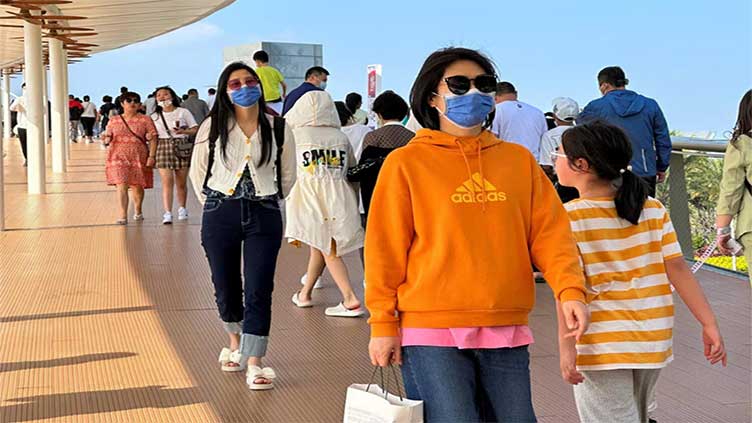HMPV: How this virus transmitted, symptoms, treatment explained

The illness can cause severe complications like pneumonia
(Web Desk) - The number of cases of Human Metapneumovirus (HMPV), a respiratory virus that causes flu-like symptoms, is increasing in China.
The country's disease control authority said it was monitoring the system for pneumonia of unknown origin, with cases of some respiratory diseases expected to rise through the winter.
This outbreak comes five years after the Covid-19 pandemic, and reports suggest the virus is spreading rapidly. After China, Malaysia has experienced a notable surge in HMPV infections in recent months.
Video circulating on social media showed a hospital in China overwhelmed with patients suffering from flu. However, last week, China’s foreign ministry spokesperson Mao Ning said, "Respiratory infections tend to peak during the winter season.
"The diseases appear to be less severe and spread on a smaller scale compared with the previous year. I can assure you that the Chinese government cares about the health of Chinese citizens and foreigners in China," she said.
What is HMPV?
Human Metapneumovirus is a respiratory infection that causes symptoms similar to the common cold and influenza. While the illness is typically mild, it can lead to severe complications such as pneumonia, particularly in infants, the elderly, and those with weakened immune systems.
How do I know if I have HMPV?
Symptoms of HMPV include cough, fever, nasal congestion, shortness of breath, and sore throat. These typically emerge three to six days after exposure. In some cases, severe illness caused by HMPV may necessitate hospitalisation.
The estimated incubation period is 3 to 6 days, and the median duration of illness can vary depending upon severity but is similar to other respiratory infections caused by viruses, according to the Centers for Disease Control and Pervention.
Is HMPV a serious disease?
Most patients recover at home within a few days, with the majority of cases being mild. However, young children, adults over 65, and individuals with weakened immune systems are at a higher risk of severe illness, according to the Cleveland Clinic.
The first infection with HMPV is more likely to cause severe illness, which is why young children are at greater risk. After the first infection, individuals gain some immunity, which typically leads to milder, cold-like symptoms in subsequent infections.
How is HMPV transmitted?
HMPV spreads through direct contact with an infected person. It can also be transmitted by touching contaminated surfaces, coughing, sneezing, or shaking hands.
If symptoms worsen, individuals may experience a severe cough, wheezing, and shortness of breath. In these cases, it's important to seek medical help immediately.


